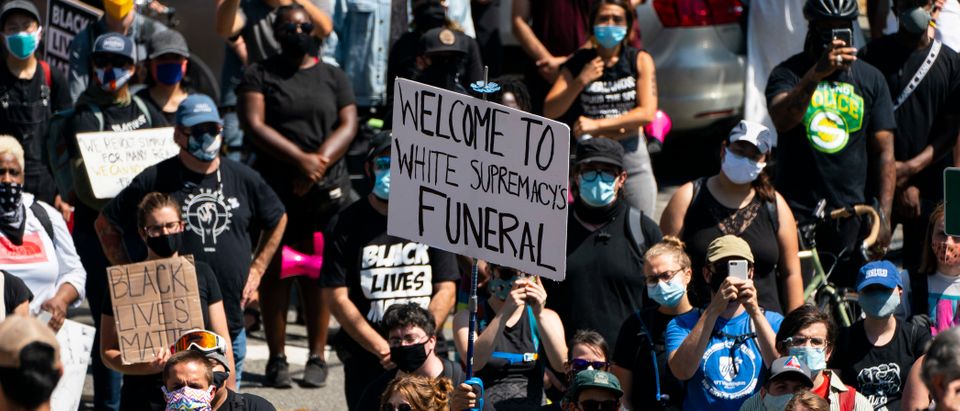Black Lives Matter protesters appeared to march through a suburban Seattle neighborhood demanding white residents give up their homes, claiming white residents gentrified the area, according to a video shared on Twitter.
Dozens of protesters chanting “Black Lives Matter” took to the streets before an unidentified man appeared to say white residents are living in a historically black section of the city and should give up their homes to black people. (RELATED: Seattle Police Chief Retires After City Council Vote To Slash Police Budgets And Jobs)
Seattle BLM protesters march through residential neighborhoods and demand white people give up their homes.
“Give up your house. Give Black people back their homes.” “what are you going to do about it? Open up your wallets.”pic.twitter.com/btRzqos0IR
— Katie Daviscourt???????? (@KatieDaviscourt) August 14, 2020
“Do you know that before your white a** came here this was all black people? Do you know people like you came here and basically bought all the land from the black people for less than what it was worth, kicked them out so you could live here?” the man said in the video. “Do you know that? Cause if you don’t, now you f–king do, now do something about it!”
A woman on a megaphone then appears to demand white residents “open” their wallets before telling the unidentified residents to leave the area.
“Give black people back their homes! You’re sitting there comfortable-comfortable as f–k as if they didn’t help gentrify this neighborhood!” the woman shouted.
Seattle is the third most gentrified city in the United States, according to The Seattle Times.
The Central District of Seattle, which has historically been black, has seen a dramatic decrease in the number of black residents, with estimates showing the area could be less than 10% black in the next decade despite having been 73% black in 1970, according to a report from The Seattle Times.
While gentrification can displace low-income families, for original residents who don’t move away, gentrification reduces their exposure to poverty and increases the value of their homes, according to The Seattle Times.
Seattle is working to rectify issues of gentrification, creating a policy that encourages developers to combat gentrification by choosing residents with community connections.


